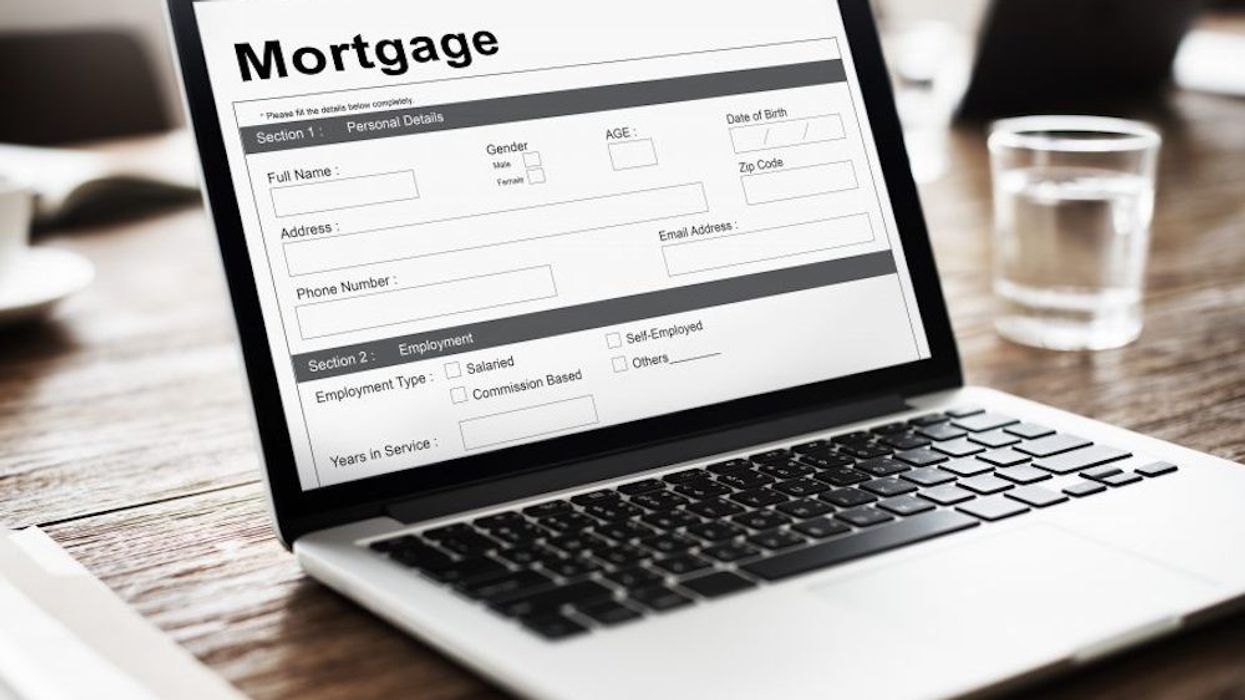The number of Canadians obtaining mortgage quotes tumbled in July as the effects of rising interest rates continued to be felt.
According to a new report from RATESDOTCA, the number of national mortgage quotes fell 11% from June to July -- an indicator that Canadians may be holding off on obtaining or refinancing a mortgage until interest rates begin to stabilize.
The findings aren't entirely surprising considering the aggressive 100-basis-point increase the Bank of Canada implemented to its overnight lending rate in July. It was the latest in a series of rate hikes beginning in March of this year that saw the bank's rate rise from its historic low of 0.25% to 2.5%.
The report notes that July's 1% jump alone has the potential to increase monthly payments by $53 for every $100,000 of a mortgage, assuming a variable rate structure and a 25-year amortization period.
"The burden of a growing mortgage loan doesn’t exactly send a welcoming message to aspiring homeowners," the report reads. "And with no clear plateau in sight, July’s hike may have Canadians questioning whether they can afford to own property at all."
The decline in mortgage quotes varied by province. Alberta saw a staggering 27% drop, meanwhile the number of quotes in Ontario fell by the average 11%. With home prices falling in markets all across Canada, it's possible that some mortgage shoppers are waiting for prices to drop even further, the report says.
“We’ve seen a lot of buyers waiting for sellers,” said Dan Eisner, CEO of True North Mortgage. “And until sellers recognize that home prices have fallen to some amount, we’re not going to see the same number of transactions in the market until maybe later this year into next year. Sellers will eventually have to lower their price if they wish to sell.”
As home prices fall, so too has the size of down payments. In fact, the national average down payment sunk 17% from April to July, the report says.
“If you were looking at a $1.2M home, and all of a sudden it's now $999,000, then you have the option to just get by with 10% down,” Eisner said, pointing to the fact that Canadian mortgage regulations require a 10% down payment for the portion of the purchase price between $500,000 and $999,999. A 20% down payment is only required on the portion of the purchase price $1M and above.
Although Ontario's down payments saw a more mild 1% decrease, Canada's other pricey province, British Columbia, saw down payments tumble 13% to a new average of $214,263. Both provinces, however, remained below the average, something that's likely attributable to the fact that homes worth more than $1M dominate these markets, thereby requiring larger down payments. Another factor is the sky-high inflation Canada has been experiencing, which could be pushing buyers to put down only what they need to, the report says.
“Clients could be thinking ‘I'm going to put less down because I want a buffer to make mortgage payments,’” Eisner said. “But that seems less likely, since as mortgage rates rise, you could be more inclined to put more down in order to do away with the interest.”
Of those Canadians who are looking to get mortgages, variable rates hold the majority of borrower interest, with 59% of mortgage quotes in July being for variable rates, compared to 41% for fixed rates.
“Normally it is predominantly fixed compared to variable,” Eisner said. “For the last few months, it’s been strongly variable versus fixed, with the qualifying rate being lower for variable, but as prime goes up, that qualifying rate goes up.”
Canada's mortgage stress test requires borrowers to prove they can afford monthly mortgage payments at an interest rate of either 5.25% or their actual interest rate plus 2%, whichever is higher. The report also notes that five-year fixed rates are currently at their highest, which may not be sustainable for some buyers.
“Five-year fixed rates are at or near their peak, so if they go up maybe only about a quarter point, then it makes more sense to go with variable,” Eisner said. “The worst-case scenario is the five-year fixed rate as it is.”
With RATESDOTCA and several other industry leaders predicting a continued decline in home prices through the first quarter of 2023, buyers are looking at an even greater opportunity to save by waiting.
“I imagine there are sellers out there who eventually will say look, I just have to sell at this point,” Eisner said. “And market peak is usually around that time.”


















